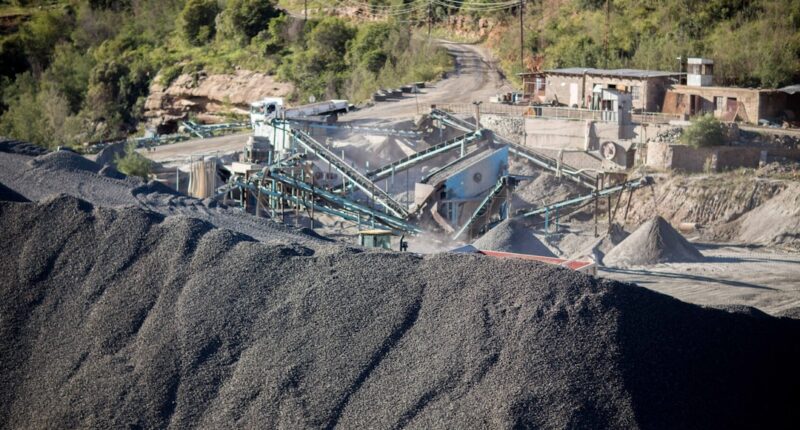Crypto mining, also known as cryptocurrency mining, is the process of validating and adding transactions to a blockchain digital ledger. This process is essential for the functioning of cryptocurrencies such as Bitcoin, Ethereum, and many others. In essence, crypto mining is the backbone of the decentralized nature of cryptocurrencies, as it ensures the security and integrity of the digital transactions.
The concept of crypto mining can be likened to traditional mining, where valuable resources are extracted from the earth. However, in the case of crypto mining, the valuable resource being extracted is digital currency. Crypto mining involves solving complex mathematical problems using computer hardware to validate and secure transactions on the blockchain.
Miners are rewarded with newly minted coins for their efforts in solving these mathematical problems. This process not only creates new coins but also helps to confirm and secure transactions, making it an integral part of the cryptocurrency ecosystem. As the popularity and value of cryptocurrencies continue to rise, crypto mining has become an increasingly lucrative and competitive industry.
Key Takeaways
- Crypto mining is the process of validating and adding transactions to the blockchain, and it is essential for the functioning of cryptocurrencies.
- The role of a crypto miner is to use specialized equipment to solve complex mathematical problems, which requires a significant amount of computational power and energy.
- Crypto miners use ASICs (Application-Specific Integrated Circuits) and GPUs (Graphics Processing Units) to mine cryptocurrencies, and they also require cooling systems to prevent overheating.
- The environmental impact of crypto mining is a concern due to the high energy consumption, but there are efforts to develop more sustainable mining practices, such as using renewable energy sources.
- The economics of crypto mining involve factors such as the cost of equipment, electricity, and the price of cryptocurrencies, and it can be a profitable but volatile industry.
- The future of crypto mining may involve advancements in technology to improve efficiency and sustainability, as well as potential regulatory changes that could impact the industry.
- In conclusion, crypto mining plays a crucial role in the cryptocurrency ecosystem, and it is important to consider its impact on the environment and the economy.
The Role of a Crypto Miner
The Validators of Transactions
Crypto miners play a vital role in the functioning of the cryptocurrency ecosystem. They are responsible for validating and securing transactions on the blockchain, ensuring that the digital ledger remains accurate and tamper-proof. Without miners, the integrity and security of cryptocurrencies would be compromised, leading to potential fraud and double-spending issues.
The Process of Proof-of-Work
Crypto miners use their computational power to solve complex mathematical problems, a process known as proof-of-work. This process requires significant computational resources and energy, making it a resource-intensive endeavor. In addition to validating transactions, miners also play a role in creating new coins through the process of block rewards.
Incentivizing Security and Integrity
This incentivizes miners to continue their efforts in securing the network and maintaining the integrity of the blockchain. Overall, the role of a crypto miner is essential for the stability and security of cryptocurrencies, making it a fundamental component of the digital economy.
The Equipment and Technology Used in Crypto Mining

Crypto mining requires specialized equipment and technology to effectively validate transactions and secure the blockchain. The most common piece of equipment used in crypto mining is the application-specific integrated circuit (ASIC) miner. These devices are designed specifically for mining cryptocurrencies and offer high computational power to solve complex mathematical problems efficiently.
In addition to ASIC miners, graphics processing units (GPUs) are also commonly used in crypto mining, particularly for smaller-scale operations or for mining alternative cryptocurrencies. In terms of technology, crypto miners rely on mining software to connect their hardware to the blockchain network and participate in the validation process. This software allows miners to monitor their mining operations, track their earnings, and adjust their mining settings as needed.
Additionally, miners may also use mining pools, which are collaborative groups of miners who combine their computational power to increase their chances of earning block rewards. Overall, the equipment and technology used in crypto mining are essential for miners to effectively contribute to the security and stability of the cryptocurrency ecosystem.
The Environmental Impact of Crypto Mining
The environmental impact of crypto mining has been a topic of debate and concern due to its significant energy consumption. The process of validating transactions and securing the blockchain requires a substantial amount of computational power, which in turn demands a large amount of electricity. As a result, crypto mining has been criticized for its carbon footprint and contribution to energy consumption.
The environmental impact of crypto mining has led to discussions around sustainable mining practices and the development of more energy-efficient mining technologies. Some cryptocurrency projects have explored alternative consensus mechanisms, such as proof-of-stake, which require significantly less energy compared to proof-of-work. Additionally, there has been a growing interest in renewable energy sources for powering crypto mining operations, with some miners utilizing solar, wind, or hydroelectric power to mitigate their environmental impact.
Overall, while the environmental impact of crypto mining is a valid concern, efforts are being made to address these issues and promote more sustainable practices within the industry.
The Economics of Crypto Mining
The economics of crypto mining are multifaceted, encompassing factors such as equipment costs, electricity expenses, and potential profitability. The initial investment in mining equipment can be substantial, particularly for high-performance ASIC miners or GPU rigs. Additionally, ongoing electricity costs can significantly impact the profitability of a mining operation, especially in regions with high energy prices.
The potential profitability of crypto mining is influenced by various factors, including the current price of cryptocurrencies, network difficulty, and block rewards. As the price of cryptocurrencies fluctuates, so does the potential earnings from mining activities. Network difficulty, which refers to the complexity of solving mathematical problems on the blockchain, can also impact a miner’s ability to earn rewards.
Despite these challenges, successful mining operations can be highly profitable, particularly during periods of bullish market conditions. Overall, the economics of crypto mining require careful consideration of costs and potential earnings to determine the viability of a mining venture.
The Future of Crypto Mining

Advancements in Technology
As technology continues to evolve, we can expect to see more efficient and powerful mining equipment that reduces energy consumption and increases computational capabilities.
Sustainable Practices and Regulatory Developments
The future of crypto mining may also see a shift towards more sustainable practices, such as the use of renewable energy sources and alternative consensus mechanisms that require less energy. Additionally, regulatory developments may impact the landscape of crypto mining, particularly in terms of energy consumption and environmental sustainability.
Mainstream Adoption and Industry Evolution
Furthermore, as cryptocurrencies continue to gain mainstream adoption, we may see an increase in demand for mining services to support the growing network infrastructure. Overall, the future of crypto mining holds potential for innovation and evolution as the industry continues to adapt to changing market dynamics and technological advancements.
The Importance of Crypto Mining in the Cryptocurrency Ecosystem
In conclusion, crypto mining plays a vital role in the functioning and security of the cryptocurrency ecosystem. Miners are responsible for validating transactions, securing the blockchain, and creating new coins through block rewards. While there are concerns about the environmental impact and energy consumption associated with crypto mining, efforts are being made to promote more sustainable practices within the industry.
The economics of crypto mining require careful consideration of costs and potential earnings to determine the viability of a mining venture. As technology continues to evolve and regulatory developments shape the industry, the future of crypto mining holds potential for innovation and evolution. Overall, crypto mining is an essential component of the cryptocurrency ecosystem, contributing to its security, stability, and decentralization.
If you’re interested in learning more about the potential job opportunities in the world of cryptocurrency and blockchain technology, you may want to check out the article “The Rise of NFT Jobs” on NFT Jobs. This article explores the growing demand for professionals with expertise in non-fungible tokens (NFTs) and how individuals can break into this emerging field. It provides valuable insights into the various roles and responsibilities within the NFT industry, making it a great companion piece to understanding the role of mining jobs in crypto. https://nft-jobs.com/hello-world/
FAQs
What is a mining job in crypto?
A mining job in crypto refers to the process of validating and adding new transactions to a blockchain, as well as creating new coins through a process called mining. Miners use powerful computers to solve complex mathematical problems that verify and secure transactions on the blockchain.
How do miners contribute to the crypto ecosystem?
Miners play a crucial role in maintaining the security and integrity of a cryptocurrency network. By validating transactions and creating new blocks on the blockchain, miners help to prevent double-spending and ensure the smooth operation of the cryptocurrency network.
What are the rewards for miners in crypto?
Miners are rewarded with newly created coins as well as transaction fees for their efforts in validating and adding new blocks to the blockchain. This process is known as block rewards, and it serves as an incentive for miners to continue contributing to the security and stability of the cryptocurrency network.
What are the requirements to become a miner in crypto?
To become a miner in crypto, individuals need access to powerful computer hardware, specialized mining software, and a reliable internet connection. Additionally, miners should have a good understanding of the cryptocurrency they are mining and be prepared for the energy costs associated with running mining equipment.
Is mining profitable in the crypto industry?
The profitability of mining in the crypto industry depends on various factors such as the cost of electricity, the price of the cryptocurrency being mined, and the efficiency of the mining hardware. It is important for individuals to carefully consider these factors before investing in mining equipment.





